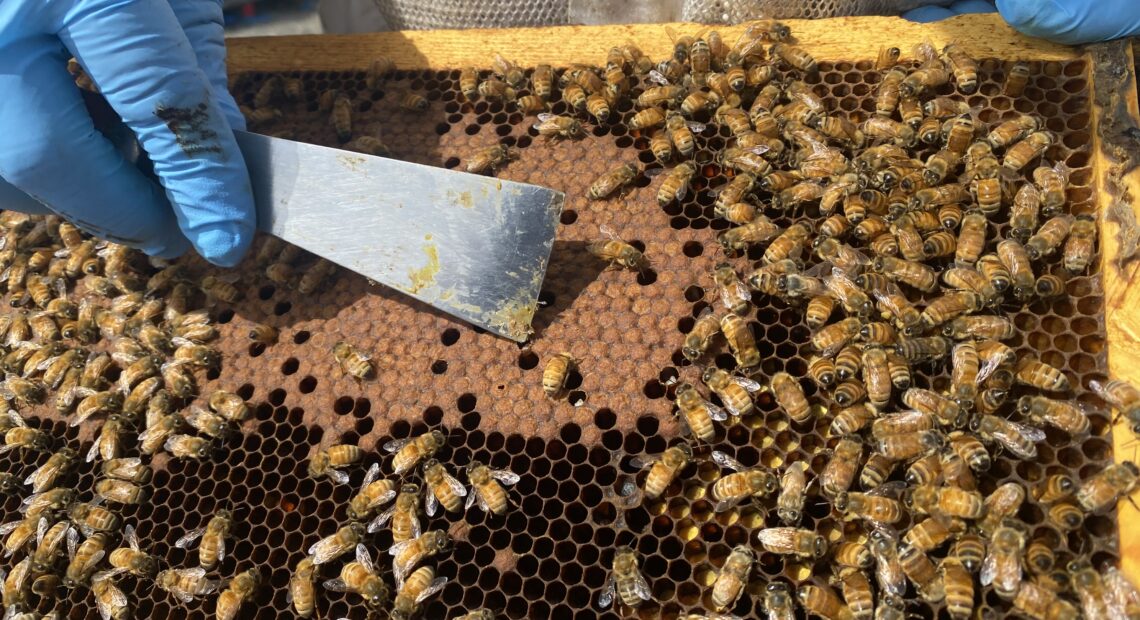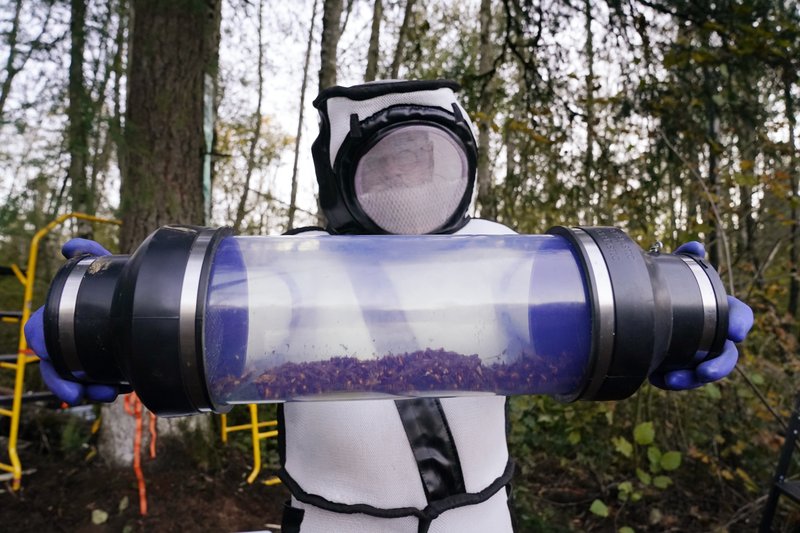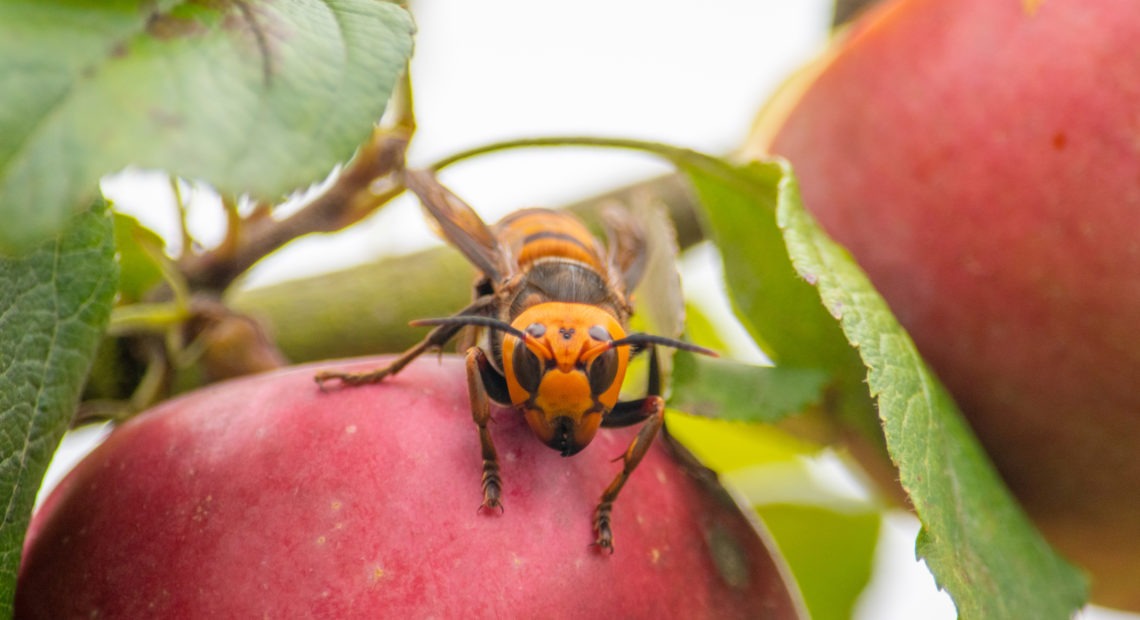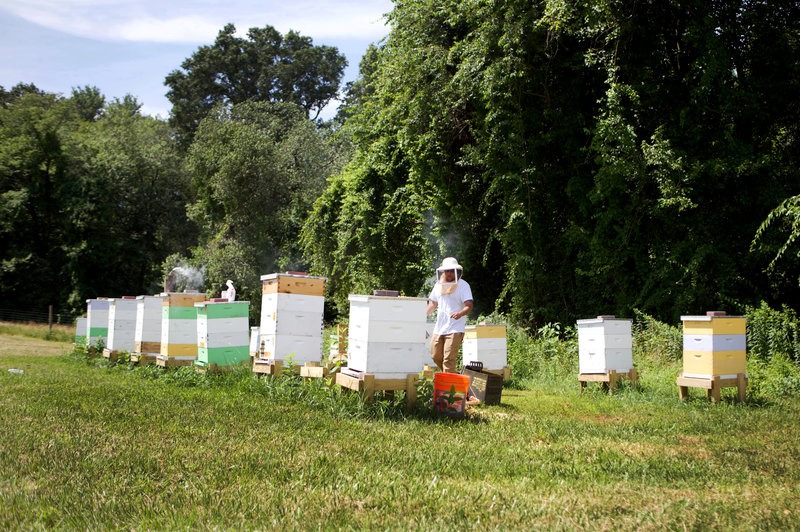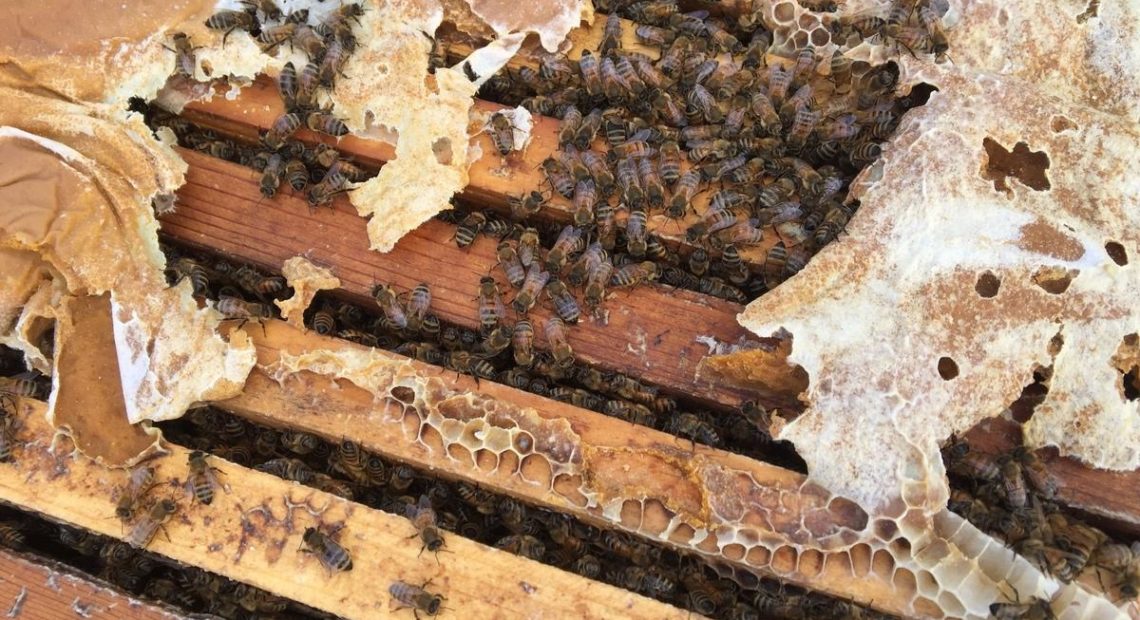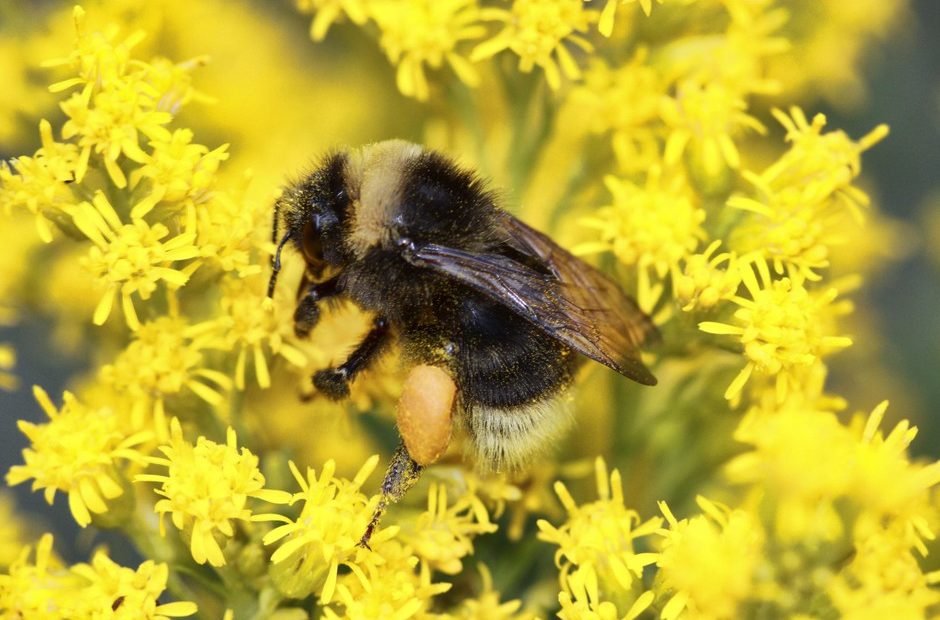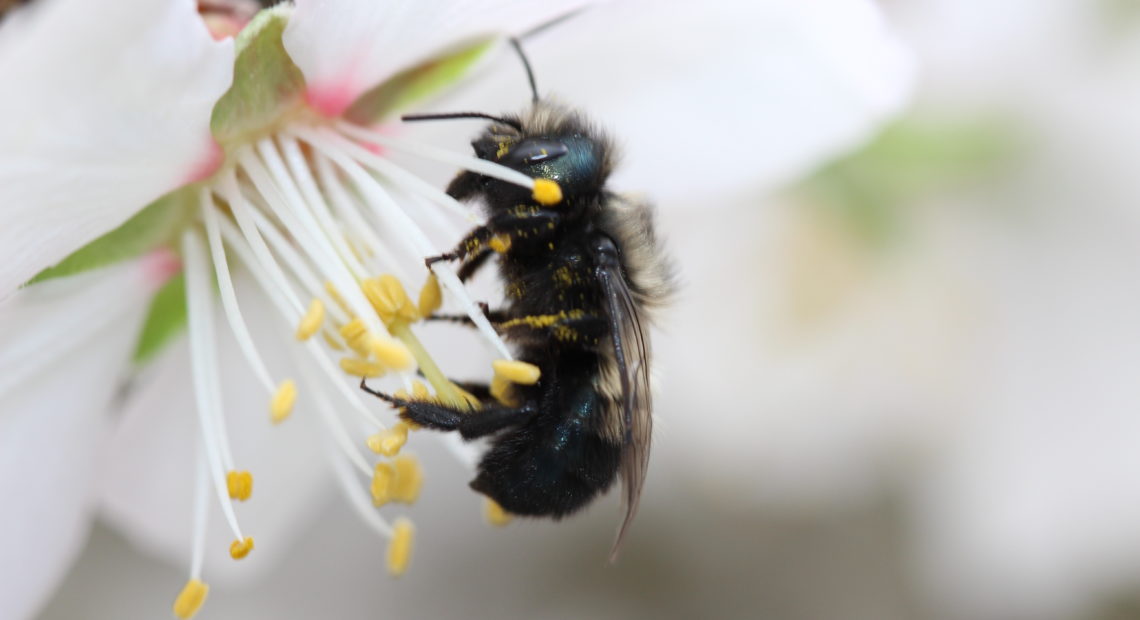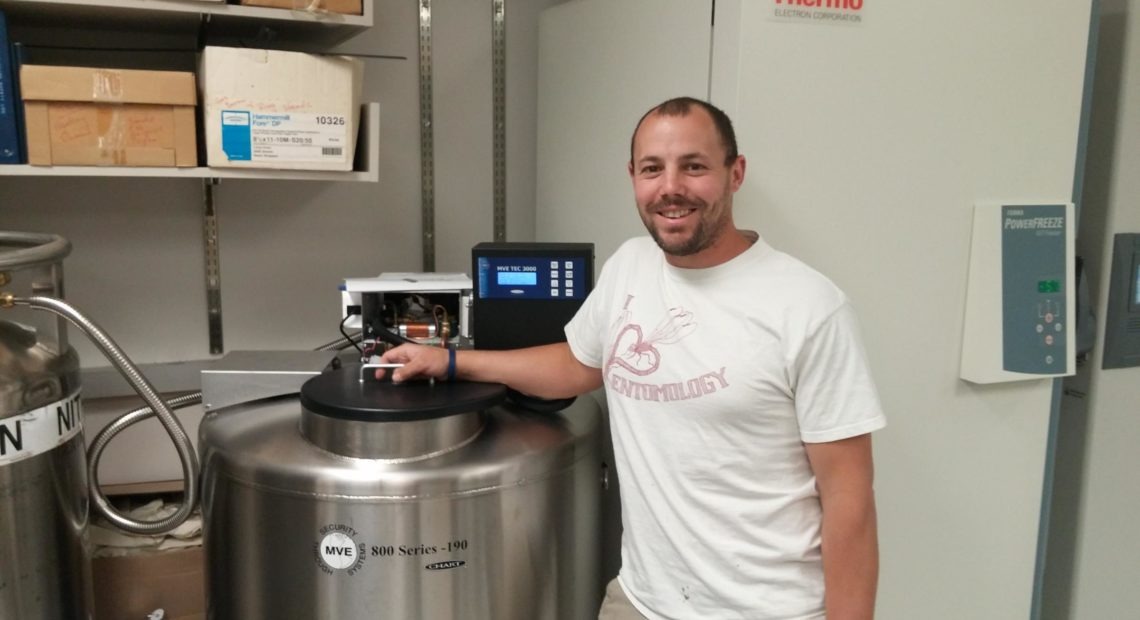Brandon Hopkins, a bee researcher with Washington State University, points May 15 with his hive tool to the new bee larvae cells where baby bees develop in the hive near […]Read More
The state Agriculture Department had spent weeks searching, trapping and using dental floss to tie tracking devices to Asian giant hornets, which can deliver painful stings to people and spit venom but are the biggest threat to honeybees that farmers depend on to pollinate crops.Read More
Researchers in Washington have lost track of an Asian giant hornet they were following — a stinging setback in the pursuit to eradicate an invasive species that threatens to decimate North American bee populations.Read More
Bee colony death continues to rise. According to the Bee Informed Partnership's latest survey, released this week, U.S. beekeepers lost nearly 40% of their honey bee colonies last winter — the greatest reported winter hive loss since the partnership started its surveys 13 years ago.Read More
This beekeeper lost more than half of his hives over the winter — 50,000. And he's not alone.Read More
Hundreds of citizen scientists have begun buzzing through locations across the Pacific Northwest seeking a better understanding about nearly 30 bumblebee species.Read More
Honey bees are struggling with habitat loss, colony collapse disorder, and other challenges. One Northwest beekeeper is rethinking the kinds of bees we use to pollinate crops in the first place.Read More
Brandon Hopkins is a WSU honey bee researcher who developed a method for freezing honey bee semen, allowing for easier bee breeding. Photo credit: Max Bartlett American honey bees […]Read More
A honey bee feeds on – and pollinates – an almond blossom at a California orchard. Bees are essential to the almond industry. Forty-two percent of America’s honey bees died […]Read More

